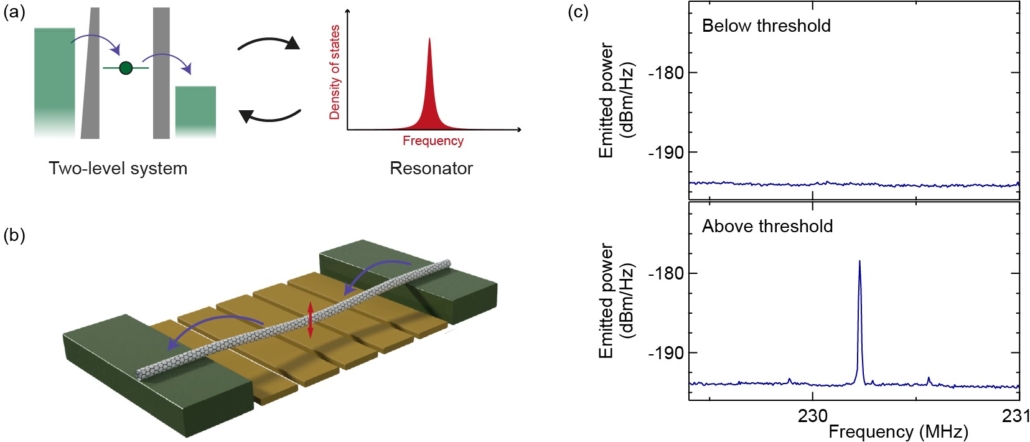Edward Laird
Lancaster University
Thursday 21th January 16:40 – 17:20 CET
ZOOM LINK TO JOIN IN: http://s.ic.fo/FNS2021_Jan21
A coherent mechanical oscillator driven by single-electron tunnelling
By Dr. Edward Laird
Department of Physics, Lancaster University, Lancaster LA1 4YB, United Kingdom
ABSTRACT:
Suspended carbon nanotubes are mechanical resonators with low mass, high compliance, and high quality factor, which make them sensitive electromechanical detectors for tiny forces and masses. These same properties are favourable for studying the effects of strong measurement back-action. This talk will describe fast electrical measurements of a vibrating nanotube in which electron tunnelling excites spontaneous mechanical oscillations.
Our device consists of a clean carbon nanotube, spanned across a trench. A pair of tunnel barriers defines a single-electron transistor, whose conductance is proportional to the displacement. With low coupling, the single-electron transistor is a sensitive transducer of driven mechanical vibrations. At intermediate coupling, electrical back-action damps the vibrations. However, at strong coupling, the resonator can enter a regime where the damping becomes negative; it becomes a self-excited oscillator.
This electromechanical oscillator has many similarities to a laser, with the population inversion provided by the electrical bias and the resonator acting as a phonon cavity. We characterize the resulting coherence and demonstrate other laser characteristics, including injection locking and classical squeezing.
Reference:
A coherent nanomechanical oscillator driven by single-electron tunnelling.
Y. Wen et al., Nat. Phys. 16 75 (2020)

Figure (a) Oscillator schematic. (b) Realization in a vibrating carbon nanotube. (c) Radio-frequency emission for device configurations below and above threshold, showing onset of self-exited oscillations.
 BIO:
BIO:
I am a Lecturer in Experimental Condensed Matter Physics at Lancaster University and a member of the Low Temperature Physics and Quantum Nanotechnology groups. Following an undergraduate degree at Oxford University, I did a PhD at Harvard University working on spin qubits in semiconductor quantum dots in the group of Charles Marcus. I was then a postdoc at Delft University of Technology in the group of Leo Kouwenhoven, where I developed qubit and mechanical devices based on carbon nanotubes. Following an RAEng Research Fellowship at Oxford, I moved to Lancaster in 2018. My research focus is quantum electronics in nanoscale devices. For more information, see http://wp.lancs.ac.uk/laird-group/
